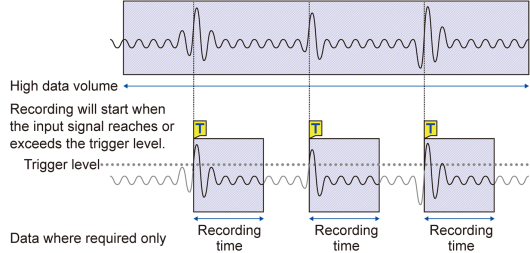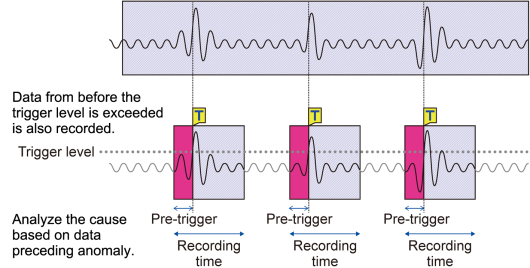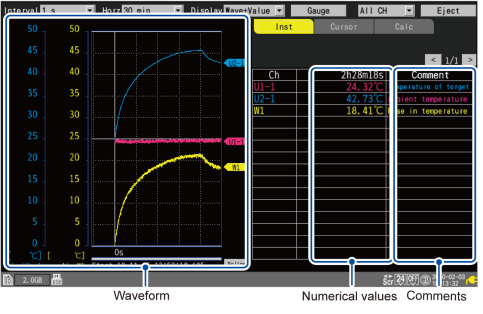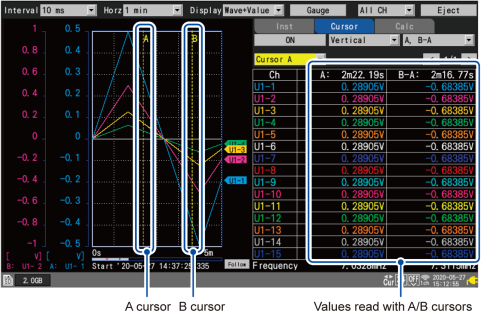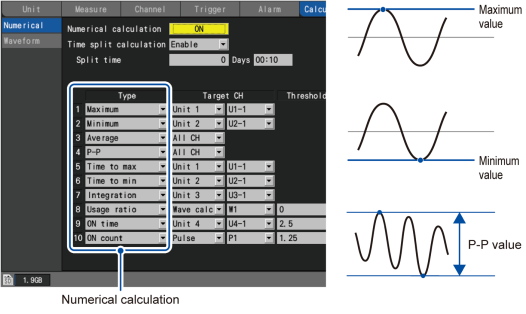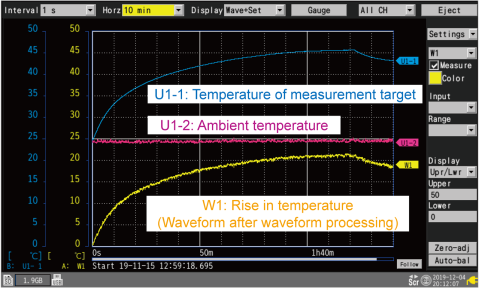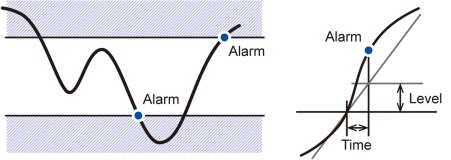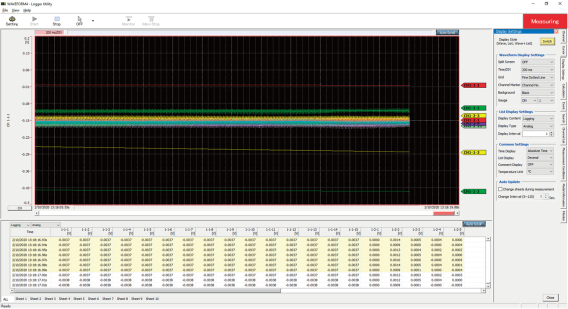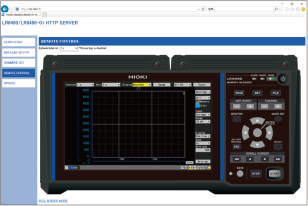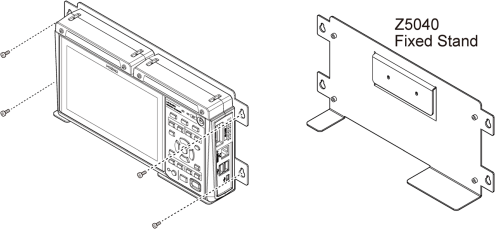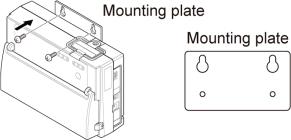Convenient Functionality
This section introduces convenient functionality provided by the instrument and indicates where to look for more information.
![]() When you want to capture sudden phenomena
When you want to capture sudden phenomena
It’s hard to search for anomalies in a long recording. You want to record only anomalies.
![]() When you want to view data before an issue occurs
When you want to view data before an issue occurs
Why did the issue occur? You want to view the waveform before an anomaly occurred.
![]() When you want to view waveforms, numerical values, and comments at the same time
When you want to view waveforms, numerical values, and comments at the same time
You want to view waveforms and numerical values at the same time. You want to display comments that identify the data.
![]() When you want to read values from waveforms
When you want to read values from waveforms
You want to read values from waveforms. You also want to ascertain the potential difference or time difference between two points.
![]() When you want to ascertain the characteristics of the measured waveform
When you want to ascertain the characteristics of the measured waveform
You want to ascertain the characteristics of a waveform, for example its maximum and minimum values.
![]() When you want to record only the rise in temperature
When you want to record only the rise in temperature
You want to know how much a temperature reading rose from the ambient temperature.
![]() When you want to stop a piece of equipment if it becomes too hot
When you want to stop a piece of equipment if it becomes too hot
You want to monitor the temperature of a piece of equipment and halt its operation if it becomes too hot.
![]() When you want to control the LR8450 from a computer
When you want to control the LR8450 from a computer
An LR8450 is located in a lab. You want to control it from a computer that is outside the lab.
![]() When you want to check the status of measurement from your office
When you want to check the status of measurement from your office
Your measurement site and office are connected by a LAN. You want to check the status of measurement using a computer in your office.
![]() When you want to embed the LR8450 in another piece of equipment
When you want to embed the LR8450 in another piece of equipment
You want to mount the LR8450 on a wall.
![]() When you want to clear the settings from the previous user
When you want to clear the settings from the previous user
The settings configured by the previous user could cause unintended operation. You want to clear those settings.
![]() When you want to schedule (start or stop) measurement in advance
When you want to schedule (start or stop) measurement in advance
You want to start or stop measurement at a certain time and date.
![]() When you want to measure voltage at a sampling interval of 1 ms
When you want to measure voltage at a sampling interval of 1 ms
You want to record output from an amp’s built-in sensor at high speed.
![]() When you want to measure strain at a sampling interval of 1 ms
When you want to measure strain at a sampling interval of 1 ms
You want to record strain gage-type converter output, for example pressure or acceleration.
![]() When you want to record a CAN signal, or you want to output measured values to a CAN bus
When you want to record a CAN signal, or you want to output measured values to a CAN bus
You want to register CAN information such as vehicle speed, or you want to output measured values from the LR8450 to a CAN bus.
![]() When you want to make measurements at a location that has no power outlets
When you want to make measurements at a location that has no power outlets
You want to make measurements at a location that has no power outlets. You want to power the LR8450 using batteries.
![]() When you want to use a sensor that requires a power supply
When you want to use a sensor that requires a power supply
You want to supply power to the Z2000 Humidity Sensor or other sensor.
![]() When you want to transport the instrument in a case
When you want to transport the instrument in a case
You want to transport the LR8450 and its accessories in a case.
![]() When you want to read sensor values directly
When you want to read sensor values directly
You want to display values from the Humidity Sensor, which generates output ranging from 0 V to 5 V, as humidity values (% RH).
![]() When you want to record current from an instrumentation device
When you want to record current from an instrumentation device
You want to record a current of 4-20 mA that is being output from an instrumentation device.
